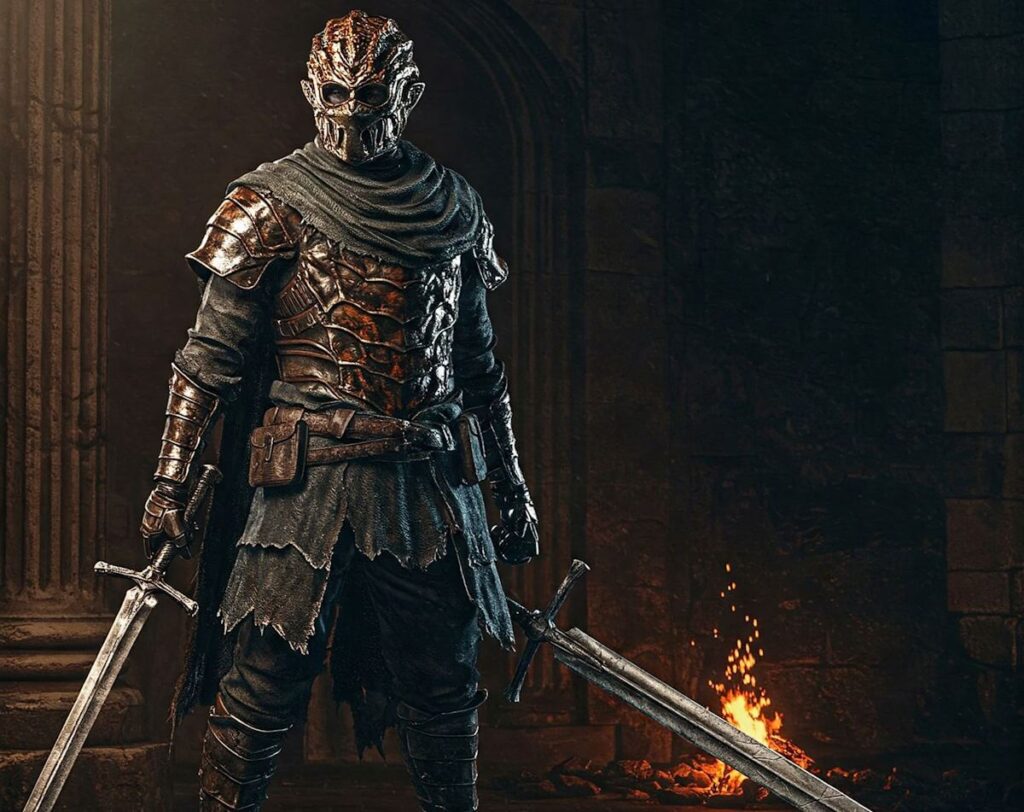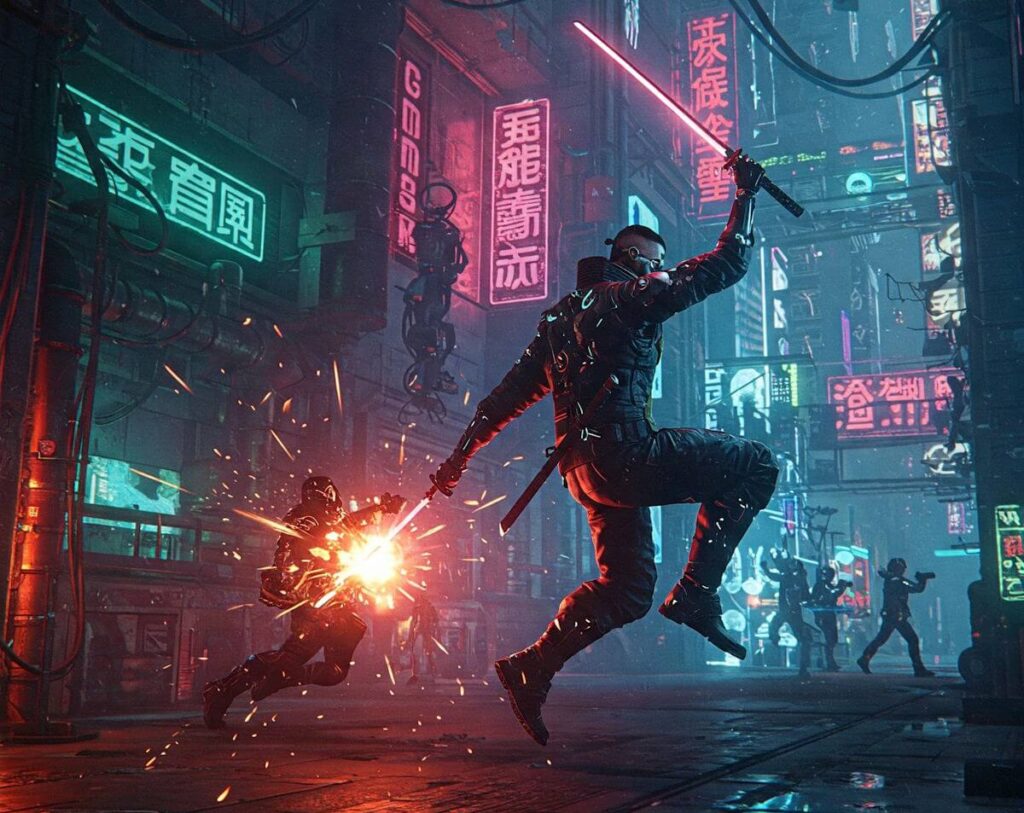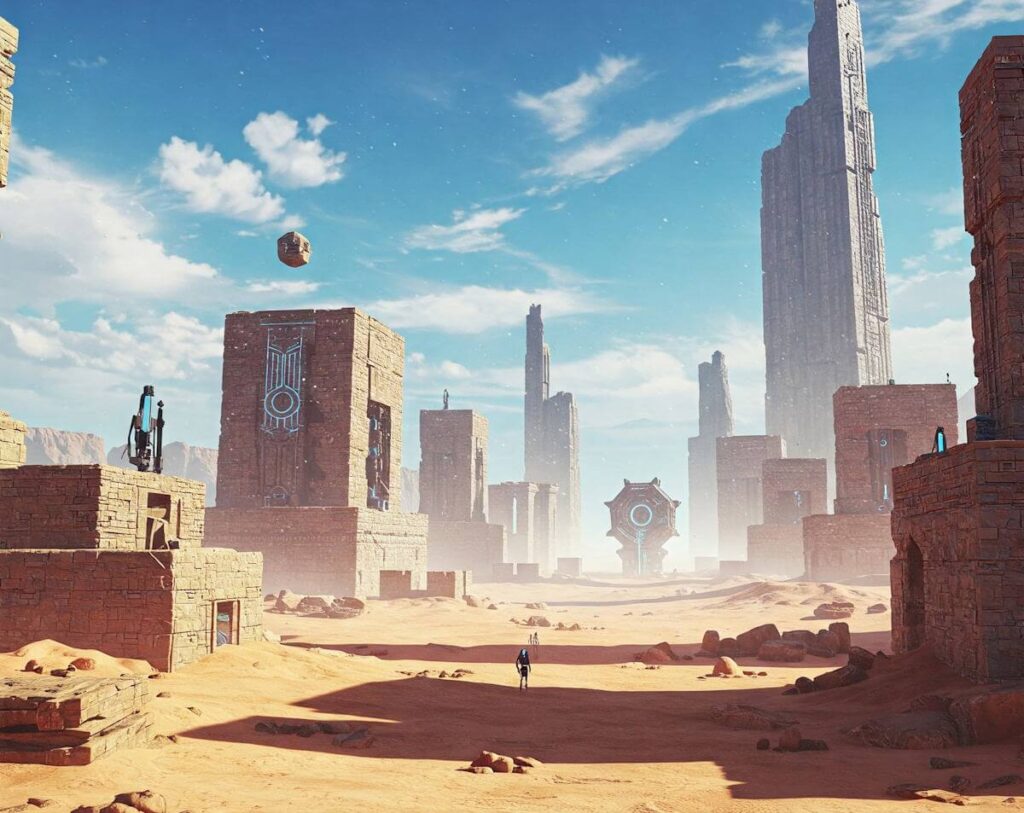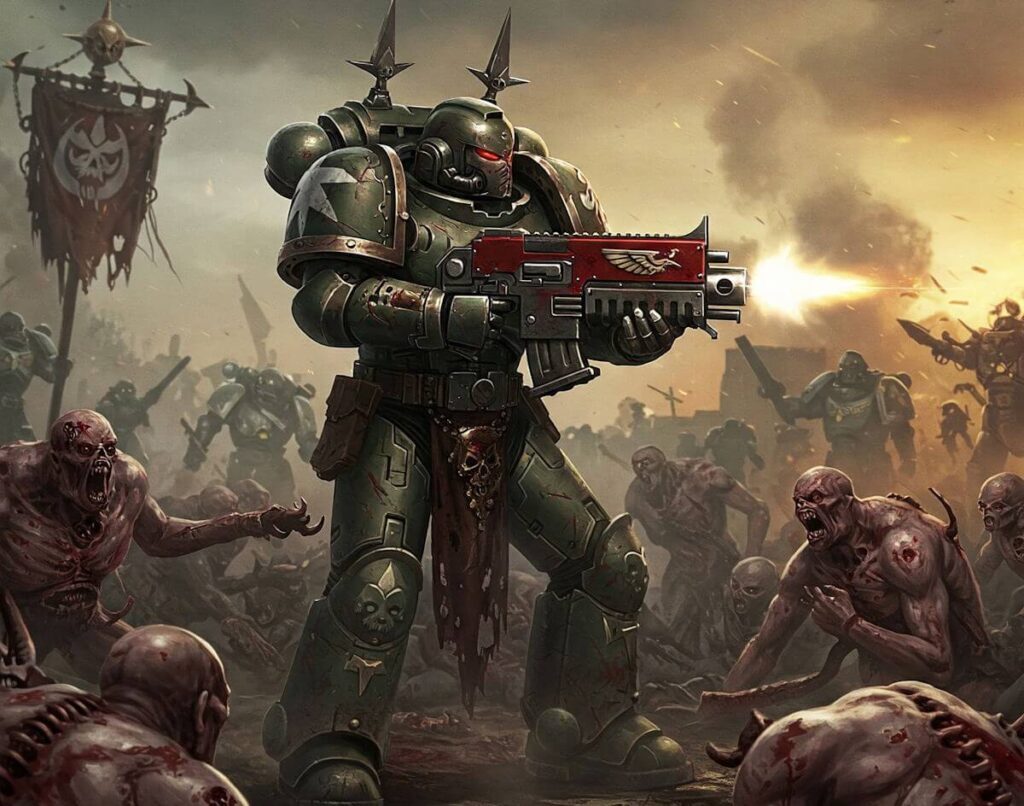Introduction to the Soulsborne Genre
The Soulsborne genre, encompassing the Dark Souls series and other titles like Bloodborne, has carved a niche for itself in the gaming community. Renowned for its challenging gameplay, this genre demands not only skill and precision but also strategic thinking, creating an engaging experience for players. From the moment players enter these meticulously crafted worlds, they are confronted with formidable enemies, punishing mechanics, and an atmosphere rich with lore, embodying the essence of what makes the genre distinctive.
One of the hallmarks of the Soulsborne genre is its intricate world design. Players often encounter interconnected environments, requiring exploration and tactical navigation to uncover hidden areas and secrets. This design not only enhances immersion but also rewards curiosity, prompting players to carefully observe their surroundings. The sense of achievement that comes from overcoming obstacles in this interconnected landscape adds an additional layer to the gameplay experience, making it truly memorable.
Another significant characteristic of the Soulsborne genre is its deep and often ambiguous storytelling. Unlike traditional narrative-driven games, these titles convey their stories through environmental clues, item descriptions, and subtle dialogue, allowing players to piece together the lore at their own pace. This indirect storytelling contributes to a sense of mystery, urging players to delve deeper into the narrative fabric of the game world. The complexity of the narratives often mirrors the intricacies of the gameplay, challenging players to not only survive but also understand the underlying themes and concepts at play.
This unique blend of challenging gameplay, intricate world design, and profound storytelling has left an indelible mark on the gaming landscape. As we explore the similarities and differences between Mortal Shell and Dark Souls, it is essential to recognize how these elements define the genre and set the stage for a robust comparison.
Overview of Mortal Shell
Mortal Shell is an action role-playing game that has garnered significant attention within the gaming community since its release. Developed by Cold Symmetry and published by Playstack, the game was officially launched on August 18, 2020. It quickly established itself as a noteworthy title in the genre, primarily due to its unique mechanics and engaging gameplay that appeals to both hardcore and casual players alike.
One of the standout features of Mortal Shell is its innovative ‘hardening’ ability, which allows players to temporarily turn into a solid state to absorb damage. This mechanic sets it apart from other games in the souls-like category, encouraging gamers to adopt a more strategic approach during combat. Players must juggle between aggressive and defensive tactics, enhancing the depth of the gameplay experience. This element of strategy is complemented by the game’s intricate world design, which encourages exploration and meticulous engagement with the environment.
Additionally, Mortal Shell draws inspiration from various titles within the genre, particularly the Dark Souls series, known for its challenging gameplay and rich lore. However, Mortal Shell innovates further by providing a unique shell system; players can inhabit different character shells, each with its own set of abilities and attributes. This feature allows for a degree of customization and adaptability, encouraging players to experiment with different strategies in combat scenarios. The game’s gothic art style and atmospheric sound design also serve to immerse players fully in its dark, foreboding world, reminiscent of its predecessors yet distinctly unique.
With its focused gameplay mechanics and distinctive features, Mortal Shell has carved a niche for itself in the action RPG landscape, making it an intriguing title worth exploring for fans of the genre.
Overview of Dark Souls
Dark Souls, developed by FromSoftware and released in 2011, is often hailed as a cornerstone of the action role-playing genre, particularly within the Soulsborne category. Created under the direction of Hidetaka Miyazaki, this game is recognized for its intricate world-building, deep lore, and challenging gameplay, elevating it to iconic status among gamers. Upon its launch, Dark Souls received critical acclaim, achieving high scores from various gaming outlets and earning accolades for its unique approach to difficulty and design. This success catalyzed a series of sequels and spiritual successors, further solidifying its influence in the gaming industry.
The gameplay mechanics of Dark Souls are characterized by methodical combat, strategic planning, and the necessity of learning from one’s failures. Players are required to engage with the environment and enemies thoughtfully, utilizing stamina management and timing to survive the game’s notoriously unforgiving battles. The death mechanic, where players lose collected souls but can recover them upon returning to the point of demise, fosters a high-stakes atmosphere that encourages perseverance and learning. With its interconnected world design, players can traverse through various paths and shortcuts, revealing hidden secrets and lore-rich narratives.
Moreover, Dark Souls is renowned for its difficulty, which has become a hallmark of the series. This challenge is coupled with an intricate storytelling style that conveys lore through environmental details and item descriptions rather than through conventional narratives. This approach encourages players to explore and piece together the history of the game’s universe, a method that has inspired numerous developers since its inception. The resonant themes of despair, hope, and resilience permeate the gameplay, making Dark Souls not merely a game but a profound journey into a dark and compelling world. This foundational role in the Soulsborne genre has had lasting repercussions, influencing countless titles and contributing to the evolution of modern action RPGs.
Game Mechanics: A Side-by-Side Analysis
Both Mortal Shell and Dark Souls are renowned for their challenging gameplay mechanics, immersive worlds, and intricate systems that require strategic thinking. At the core of their design is the combat system, which serves as the lifeblood of player engagement. In Dark Souls, combat is characterized by its deliberate pace and a focus on timing, where players must learn enemy patterns to execute perfect dodges and counters. The stamina bar plays a crucial role, as each action requires stamina, prompting players to balance aggression with defense.
Mortal Shell, while drawing inspiration from Dark Souls, introduces a unique mechanic through its “Shell” system, allowing players to inhabit various characters, each with distinct attributes and abilities. This adds an additional layer to character progression, as players can strategically switch between shells to adapt to different combat situations. Each shell has its own strengths and weaknesses, encouraging diverse playstyles and personalizing the player experience.
In terms of character progression, Dark Souls emphasizes leveling up attributes like strength, dexterity, and endurance. This allows for a high degree of customization, enabling players to tailor their builds according to their combat preferences. Alternatively, Mortal Shell offers a more streamlined approach, focusing on upgrading abilities tied directly to the shells rather than the general stats, which can simplify decision-making for players.
The defensive strategies employed in both games also showcase their individuality. Dark Souls features a robust shielding system, where players can block or parry enemy attacks, relying on their timing and positioning to survive. Mortal Shell, contrastingly, utilizes a “hardening” mechanic that allows players to temporarily become invulnerable, emphasizing positioning and timing in a different way.
When addressing difficulty, both games are known for their punishing nature, rewarding patience and thorough exploration. Items and resources function similarly; Dark Souls provides a plethora of consumables to restore health and status effects, while Mortal Shell utilizes a more limited resource system, encouraging strategic use of items during encounters. Ultimately, both games offer a rich tapestry of mechanics that cater to players seeking challenging and rewarding experiences.
Art Style and World Design Comparisons
When examining the art style and world design of Mortal Shell and Dark Souls, it becomes evident that both games adopt an intricate approach to their visual storytelling. Each title presents a unique atmospheric experience that significantly contributes to player immersion. Though they exist within the same genre, the artistic directions taken by the developers result in distinct yet comparably dark and foreboding environments.
Dark Souls is renowned for its diverse and interconnected world design, which is characterized by a sense of desolation. The architecture reflects a medieval aesthetic, complete with crumbling castles, dilapidated ruins, and grotesque creatures that populate its landscapes. Each environment tells a story of a once-vibrant world now cloaked in shadows. The intricate level design encourages exploration, inviting players to uncover secrets and navigate challenging terrains. Every nook and cranny echoes the history of Lordran, further enhancing the game’s dark fantasy atmosphere.
Conversely, Mortal Shell offers a more compact yet equally immersive experience. Its world is artistically crafted with a heavy emphasis on surreal landscapes and a haunting atmosphere. The use of elaborate environments, such as the decaying remnants of ancient civilizations and eerie forests, establishes a strong thematic consistency. The level design in Mortal Shell balances exploration and challenge, allowing players to traverse diverse biomes filled with visually striking art assets. This approach elucidates the game’s narrative, drawing players into its intricate lore and emotional themes.
Both games excel in using their art styles to enhance player experience. While Dark Souls focuses on vast interconnected regions that create a sense of progression and depth, Mortal Shell employs a more concise yet artistically rich approach to immersive storytelling. The atmospheric integrity and visual coherence inherent in both titles underscore their significance within the souls-like genre.
Narrative and Lore Exploration
The narrative structures of both Mortal Shell and Dark Souls offer players a unique opportunity to engage with rich, immersive worlds, albeit through different storytelling techniques. Dark Souls is renowned for its intricate lore, which is revealed primarily through environmental storytelling, subtle item descriptions, and the cryptic dialogue of non-player characters (NPCs). Players often find themselves piecing together fragmented narratives, leading to a deeper, albeit more laborious, understanding of the world. This method of storytelling invites players to explore every corner of the game, encouraging thorough examinations of the environment. The interconnectedness of lore is a hallmark of the Dark Souls series, as various elements—such as locations, characters, and items—interact to create a cohesive, albeit enigmatic, narrative tapestry.
In contrast, Mortal Shell employs a more direct approach to its narrative while still retaining elements typical of its soulslike inspirations. The game provides a clearer emotional context, with a more defined protagonist who navigates through a world teeming with existential challenges. Lore is uncovered through the exploration of the game’s diverse environments and the careful examination of item descriptions, similar to Dark Souls, but Mortal Shell places greater emphasis on interactions with the world itself. The lore serves to enrich the player’s experience while also offering insights into the history and struggles of the characters they encounter. The design and structure of Mortal Shell allow players to unravel the narrative with a mixture of exploration and critical thinking, fostering engagement and curiosity.
Ultimately, both games showcase the power of environmental storytelling and subtle lore integration. Players are encouraged to delve into the intricacies of each world, with Dark Souls providing a more fragmented experience, while Mortal Shell offers a clearer narrative path. Both paradigms invite players to interpret and connect with the stories at their own pace, reflecting the depth and complexity of modern gaming narratives.
Community and Multiplayer Aspects
The community and multiplayer elements of both Mortal Shell and Dark Souls underline the significance of player interaction in enhancing the gaming experience. Dark Souls, renowned for its intricate world design and challenging gameplay, fosters a robust online community. It utilizes a unique multiplayer system that permits cooperative play, allowing players to summon allies for assistance in challenging boss fights, or even engage in competitive player-versus-player (PvP) duels. This dynamic encourages social interaction and collaboration, as players often share their strategies, discoveries, and experiences through forums and social media platforms.
On the other hand, Mortal Shell adopts a different approach to multiplayer interactions. While it does not offer a traditional co-op mode or extensive PvP features as seen in Dark Souls, it has successfully cultivated a community atmosphere through its distinct gameplay mechanics. The emphasis on single-player experiences combined with the availability of an extensive lore encourages players to connect over shared theories and gameplay styles. Mortal Shell’s challenge of mastering its combat system provides ample content for discussion, particularly as players share their interpretations of the game’s lore and its cryptic messaging.
The engagement of both communities is particularly evident in the abundance of online discussions, fan theories, and lore exploration. In Dark Souls, the interconnected narratives and environmental storytelling prompt players to delve into the game’s rich mythos, resulting in fan-generated content ranging from extensive theories to artwork. Mortal Shell, though more limited in direct player interaction, still receives a wealth of engagement from its community, driven largely by its unique take on mechanics and lore complexity. As both games continue to evolve and attract new players, their respective communities remain vibrant, serving as a testament to how multiplayer aspects can enhance the overall experience of video games.
Player Reception and Criticism
The reception of both Mortal Shell and Dark Souls provides intriguing insights into the gaming community’s preferences for mechanics, graphics, and overall gameplay experience. Upon its release, Mortal Shell received a mixed yet generally favorable response, praised for its striking visuals and unique gameplay dynamics. Many players appreciated the game’s art style, drawing comparisons to the atmospheric landscapes found in Dark Souls while also noting the distinct aesthetics that Mortal Shell offers. Critics highlighted the intricate design of environments in Mortal Shell, but some players argued that the game did not deliver the same depth and cohesion found in the Dark Souls series.
In terms of gameplay, Mortal Shell introduced innovative mechanics, such as the ability to inhabit different shells, which lend various attributes and skills to the player. This feature faced mixed feedback; while some players celebrated this novelty as it enhanced strategic options, others felt it led to a less cohesive combat experience compared to the more streamlined approach of Dark Souls. The difficulty level, a hallmark of the Dark Souls franchise, also invited scrutiny. Many fans of Dark Souls found Mortal Shell’s challenge to be less punishing yet still rewarding, which may not entirely satisfy the established audience seeking an uncompromising test of skill.
Final Thoughts: Which Game Prevails?
In the realm of action role-playing games, both Mortal Shell and Dark Souls have carved out distinctive niches, captivating players with their unique offerings. When it comes to gameplay, Dark Souls is renowned for its intricate world design and punishing difficulty, requiring players to master its challenging mechanics. The interconnectedness of its environments promotes exploration and rewards patience, making the journey just as gratifying as the final confrontation. On the other hand, Mortal Shell introduces a refreshing twist to the formula, allowing for greater player adaptability through its shell system. This feature enables quick style shifts, appealing to gamers who appreciate versatility in their combat approach.
Storytelling also plays a pivotal role in defining each game’s experience. Dark Souls weaves a narrative rich in lore, though often shrouded in ambiguity, requiring players to piece together the story through environmental clues and item descriptions. This approach enhances the sense of discovery, yet may feel esoteric to some. Mortal Shell, in contrast, streamlines its narrative and focuses on existential themes of identity and sacrifice, providing more explicit context for players. While both games have merits in their storytelling techniques, personal preferences will largely dictate which approach resonates more with the audience.
Ultimately, the overall experience both games provide reflects their distinct philosophies. Dark Souls immerses players in a relentless, often daunting world that predominately emphasizes player skill, while Mortal Shell champions adaptability and experimentation within its atmosphere of dark fantasy. Players are encouraged to reflect on their gaming styles and preferences before deciding which title may reign supreme. Both Mortal Shell and Dark Souls have undeniably made significant contributions to the action RPG genre, ensuring their places in the hearts of gamers for years to come.




